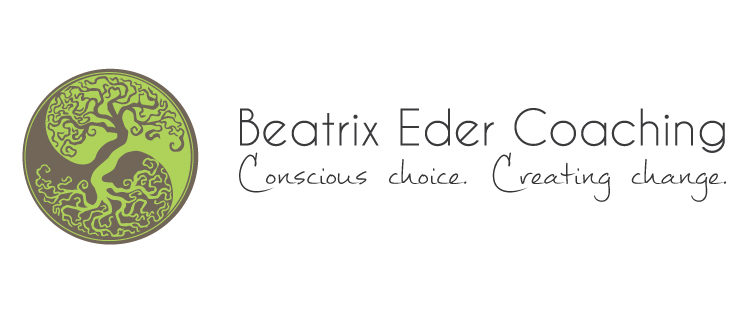
Workplace policy around domestic violence and abuse
Workplace policy around domestic violence is a moral responsibility and a business imperative
Domestic violence has been on the rise in Singapore since the beginning of the circuit breaker period. Though the circuit breaker period has exacerbated the situation by confining families together in a time where financial pressure has been tremendous, domestic violence has been prevalent in Singapore -just like in other countries- even before the circuit breaker and continues until today.
Domestic violence and abuse (DVA) refers to physical, verbal, emotional, economic and sexual abuse that happens in a domestic setting between intimate partners, family members or cohabiting people.
A social taboo
This theme is so stigmatized that it is mostly concealed, covered up and kept as a secret – by the victims, the perpetrators and the silent witnesses. And yet, domestic violence happens in every country, throughout the socio-economic layers of society in heterosexual relationships the same way as in same-sex relationships, between currently liaised couples or those who have separated. Women are more often the victims but there are also men experiencing subtle, coercive or overt abuse.
Though in some cases, men are also victims of domestic violence, it affects more women:
- 1 in 10 women in Singapore experience lifetime physical violence by a male (International Violence Against Women Survey, 2010).
- 6 in 10 victims of physical violence suffer repeated victimization(ibid).
- Respondents show high levels of recognition of physical violence but lower levels of recognition of non-physical violence
- 7% of women abused by partners are not likely to make a police report. (International Violence Against Women Survey, 2010).
(Source: www.aware.org )
Law and Home Affairs Minister K. Shanmugam implored in April this year witnesses to acts of domestic violence to speak up on behalf of these victims instead of looking the other way.
The Business Case for a Domestic Violence Policy in the Workplace
On October 1st 2020, United Women Singapore and the American Chamber of Commerce presented a panel discussion on the theme of “The Business Case for a Domestic Violence Policy in the Workplace”.
United Women Singapore is a local non-profit organisation that works towards narrowing the gender equality gap through education and raising awareness and advocacy on issues such as anti-violence and women’s empowerment, with the support of key stakeholders including corporate partners, government agencies, academia, the diplomatic community and other non-profits.
GenSafe Workplaces is United Women Singapore's anti-violence programme developed to help organisations in the private sector implement a comprehensive plan to support their employees who are impacted by domestic violence and abuse ("DVA") and to ensure a safe and supportive workplace environment for them.
Jeanne Lee, Senior Account Director at LinkedIn, moderated the virtual panel discussion and invited Georgette Tan, President at United Women Singapore (UWS), to start with sharing information on the negative impact of domestic violence on the employee-victim and the employer-organisation.
Based on a 2019 joint study by UWS and IPSOS, 10% of the participants surveyed have experienced Domestic Violence and Abuse (DVA). In a separate local study, 72% of women abused by their partners are unlikely to report it. Singapore's high female labour force participation rate indicates that a significant number of Singapore workplaces may be impacted by DVA and many female employees are suffering in silence. In addition to a strong social component, domestic violence has a significant economic consequence for organisations through reduced productivity, absenteeism, employee turnover, medical costs, and more.
Ms Georgette Tan concluded that the advocated company policies are not to be seen as stand-alone but should be part of the holistic program around building inclusive workplaces and engaging employees.
Following this presentation, Sandra Aulia, courageously shared about her personal experience as a survivor, how the violence affected her work life and how she personally overcame it.
Ms Sandra Aulia explained the discrepancy in the lives of many victims: displaying on the one hand a picture-book life where everything is going smoothly and on the other hand the hidden reality at home. Many victims experience it as terrifying to realize that
- their home and supposedly safe harbor is not safe at all; and
- they are isolated and without resources to change the situation as long as the episodes are concealed by shame and fear.
Ms Sandra Aulia finished her speech by calling for a different way of handling conflict and imploring that public silence is an indirect way of approval, tolerating the system of abusive relationships behind closed doors.
Next, Elizabeth Faber, Chief Talent Officer at Deloitte, shared several innovative policies and best practices implemented by Deloitte to support any members of their staff that are victims of domestic violence. Ms Elizabeth Faber emphasized the importance of putting domestic violence on the corporate agenda, not just through concerns for the productivity and competitiveness of companies but also for the social responsibility of creating a safe workplace and a safe society for everyone.
Some of the best practices applied for several years at Deloitte:
- Treating these cases with utmost discretion and confidentiality so as to ensure the safety of people involved
- Training employees at all levels of the company to recognize signs of DVA, how to respond and what actions might be helpful
- Special support of middle management as line managers are often the first ones to recognize (or miss) these signs
- Possibility to change email address and phone number for employees in need
- Arranging Family rooms if required
- Financial assistance: giving employees the possibility to get quickly & easily loans without interest; and
- Working with selected external professionals, specialized on the theme of DVA
To conclude, Dr Austin Tay , Founder of Omnipsi Consulting, took a systemic perspective on how organisations can implement a workplace policy on domestic violence.
Dr Tay reminded attendants of the importance of psychological safety at workplaces: today’s employees do not want to compartmentalize their lives anymore, they want to bring their full selves to work and want to be assured that they will be accepted, welcome, heard and supported with all aspects of their lives.
The responsibility of organisations
Domestic violence permeates the lives and compromises the safety of thousands of employees in Singapore each day, with tragic, destructive, and often fatal results.
It is very likely that your company already employs people who live in abusive relationships and experience domestic violence. Your company’s policy around Domestic Violence and Abuse communicates to your employees where your company stands in this regard. A workplace policy for Domestic Violence and Abuse indicates that your company is not tolerating violence – whether on the premises of the company or elsewhere. Such a policy sends a clear signal to employees that they are valued not only within the hours spent at work but as human beings, with all aspects of their life. Finally, such a policy contributes to creating and maintaining an inclusive culture where employees are accepted, welcome and heard which in return ensures that they can be fully engaged and focus on being high performing, productive members of the organisation.
Questions for reflection
- What policies might your company set up to protect employees from domestic violence and abuse?
- How can you educate employees to recognize signs of domestic violence and address them in a tactful way?
********************************************
Was this article helpful?
Here are some ways I can support you and your organization:
Get Individual leadership coaching with Beatrix
Deepen and accelerate your learning with one-on-one coaching with Beatrix. Identify and transform patterns and learn new tools that will help you to practice Inclusive Leadership at Work & Home and effectively work with people across differences in identity, experience and power.
Inquire about Individual Coaching here.
Get group coaching with Beatrix
Team coaching is a mid-term process with regular sessions that support a team in an individualized way to improve both the improvement of task-execution as well as the collaborative alliance within the team. The process supports teams to become more cohesive, increase their ability to problem-solve and become more competent in transforming overt and covert conflicts.
Inquire about Group Coaching here.
Book Beatrix for a webinar / workshop / training
Beatrix facilitates virtual and in-person workshops using experiential, interpersonal and reflective activities to share knowledge around Inclusive Leadership, inspire vision, ignite change and build workplaces that are diverse and cohesive. Participants will be supported to embrace new perspectives about differences and translate freshly gained knowledge into concrete actions.
Sessions are customized to your needs and can be delivered in 90-minutes to 3 hours.
Inquire about Webinars and Workshops here.
Get support with Organizational Consulting
Beatrix can help your company to co-create creative and cohesive teams that work effectively in a hybrid work environment, using effective feedback systems, collaborative decision-making processes and respectful communication norms.
Inquire about Organizational Consulting here.



